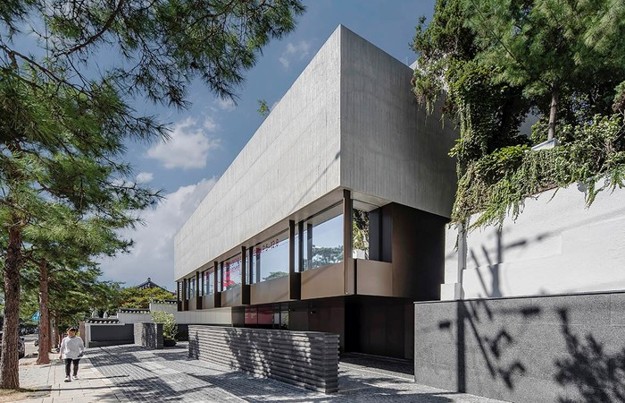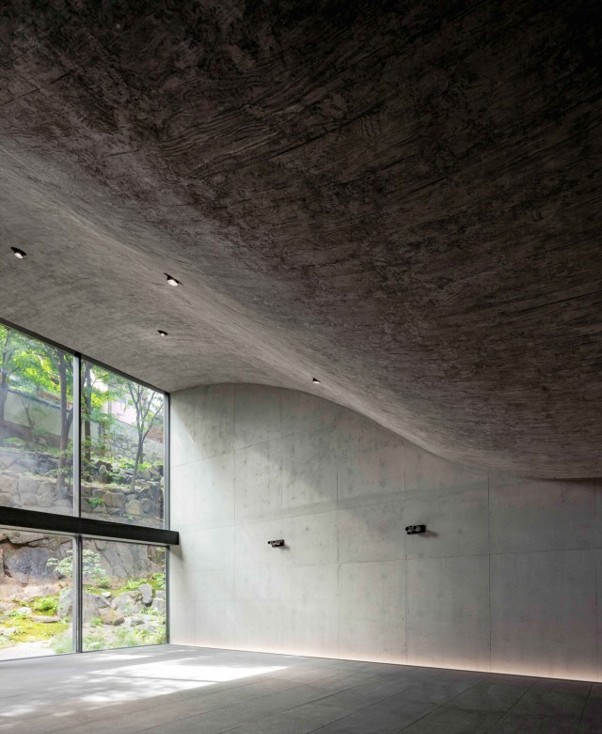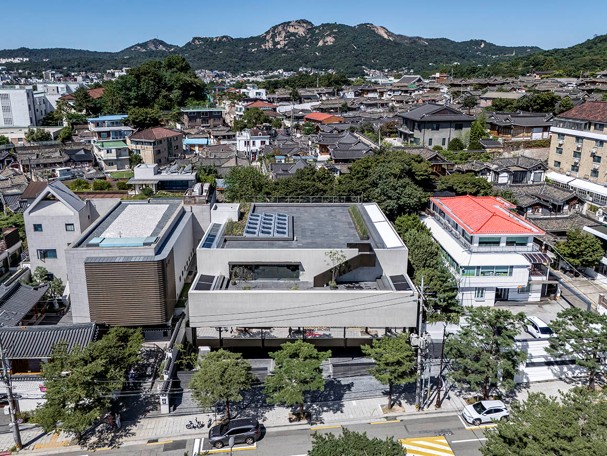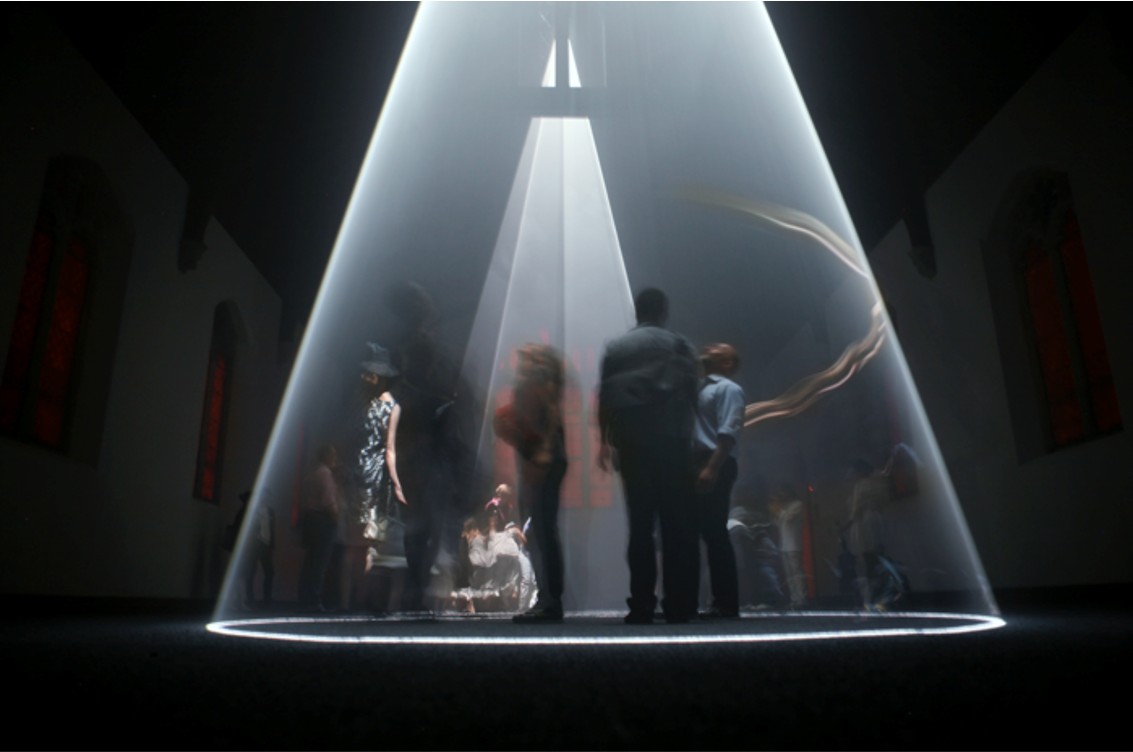At 61
Bukchon-ro, Jongno-gu, in the heart of Seoul’s traditional hanok cluster, FUTURA
SEOUL bridges the grain of heritage architecture with a boldly contemporary
exhibition infrastructure. The core is a main hall with roughly 10.8-meter
clear height spanning levels 1–2, linked to upper terraces and a rooftop
garden. Generous daylighting pulls the outside deep into the interior, so along
the circulation you read layered vistas of light, nature, and city all
at once.

Exterior / facade (Bukchon) / Photo courtesy of FUTURA SEOUL (official website)
Designed by WGNB
(led by Baek Jonghwan), the project was recognized at the 43rd Seoul
Architecture Awards with a Silver (Emerging Architect) citation.

Interior level — exposed-concrete ceiling and lower slit window (rear-garden view) / Photo courtesy of FUTURA SEOUL (official website)
Seen between
Bukchon’s tiled roofs, FUTURA SEOUL keeps the neighborhood scale intact on the
outside; step inside and the double-height main hall immediately opens
your field of view. A skip-floor sequence loosely stitches the levels to
create an organic visitor flow, while neutral materials—exposed concrete
with timber and metal accents—receive artworks’ color and light with clarity.

Rooftop / terrace with Bukchon panorama / Photo courtesy of FUTURA SEOUL (official website)
Under the
operational philosophy “100 Poems,” exhibitions are concretized by the
space itself. For each show, lighting levels, circulation, and sightlines are
tuned to maximize immersion. Large-scale media/installation works can run close
to full scale using the main hall’s volume and built-in technical
points, while smaller works find rhythm in courtyards, corridors, and
landings that reset the spatial tempo.
The rear garden
(huwon) captures the Korean idea of borrowed scenery (cha-gyeong),
framing rock, trees, and shifting sun through large openings so the outside
overlaps naturally with the exhibition inside. From the terraces and rooftop,
Bukchon’s roofscape, the city, and distant ridgelines fall into a single frame.
In short, FUTURA SEOUL pairs a context-honoring exterior with a future-ready
interior, a place where light, nature, and architecture actively
complete the exhibition.
Now on View:《Anthony McCall Works 1972–2020》
In its first year
of operation (2025), FUTURA SEOUL is presenting Anthony McCall’s first
solo retrospective in Asia, 《Works 1972–2020》 (May 1–September 7).
 Anthony McCall, Solid Light visitor
experience / Photo courtesy of FUTURA SEOUL (official website)
Anthony McCall, Solid Light visitor
experience / Photo courtesy of FUTURA SEOUL (official website)
Known as a “sculptor
of light,” McCall brings a substantial grouping of Solid Light works.
The high-volume main hall enables near full-scale presentation of
vertical light pieces, and—true to the retrospective format—the show spans from
early performance/film to sound and archival components.
“Time and
space sculpted by light”—when McCall’s work meets FUTURA SEOUL’s volume,
the visit becomes an entry into light itself. How the architecture receives
the artwork is a key point of experience.
FUTURA SEOUL
demonstrates—within Seoul’s traditional context and with contemporary
sensibility—that architecture can make the exhibition. It preserves
Bukchon’s silhouette while absorbing the volume and density required by
today’s media and installation art—why some of the city’s most “spectrum-rich”
exhibition experiences are possible here, right now.
Visitor Info
Venue: FUTURA SEOUL, 61 Bukchon-ro, Jongno-gu, Seoul (03052) (futuraseoul.world)
Current
Exhibition:《Anthony McCall: Works 1972–2020》(2025.05.01–09.07)
(futuraseoul.world)
Spatial
Highlights: approx. 10.8 m clear-height main
hall / terraces & rooftop garden / daylight-driven exhibition lighting (Maeil Business Newspaper, Korea Herald)
Key Concept: “100 Poems” — a curatorial philosophy that treats each
exhibition as a poem realized through space (futuraseoul.world)























